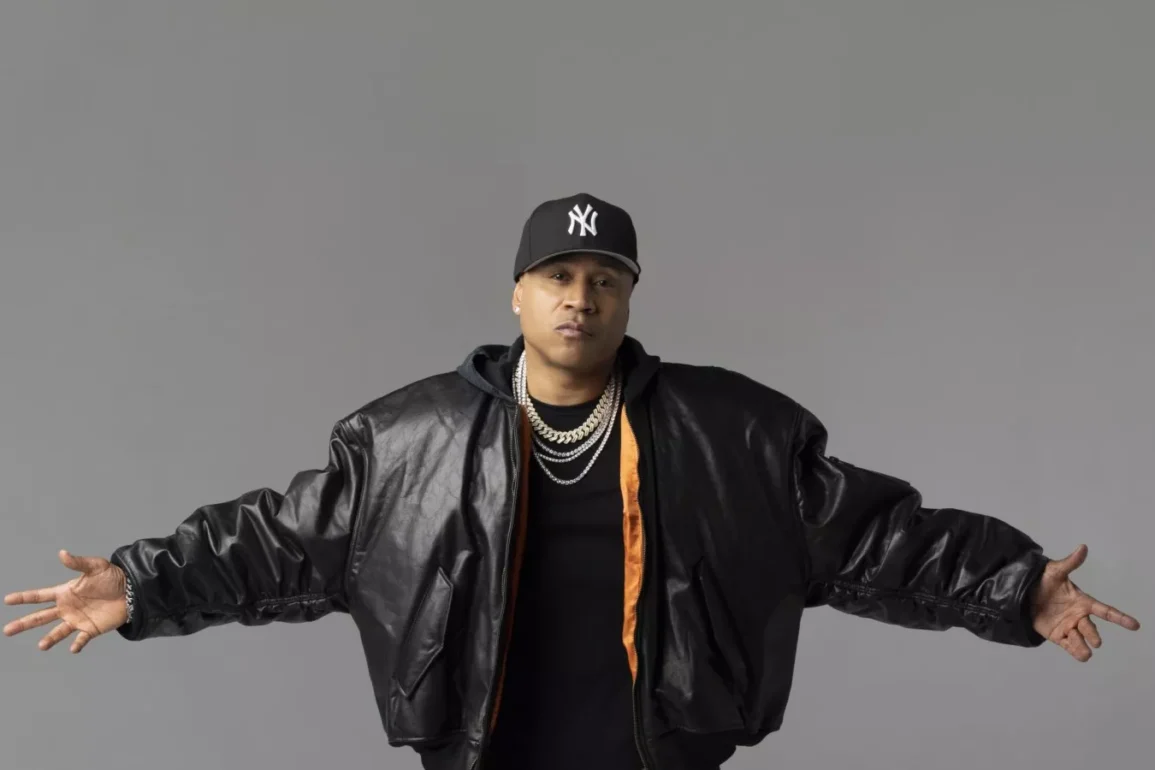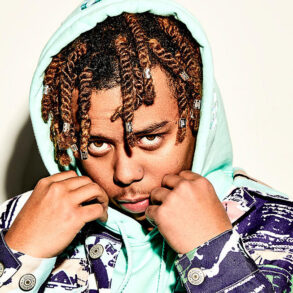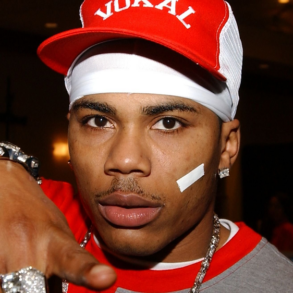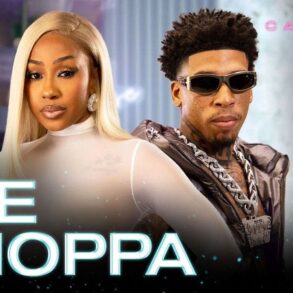To get an idea of how far back LL Cool J’s contributions to hip-hop go, take a close listen to his recollection of a conversation with Q-Tip that became the genesis of his new album The FORCE. Q-Tip is one-fourth of the revered rap group A Tribe Called Quest; their penchant for meshing jazz samples with thoughtful, Afrocentric lyricism made them one of the most original acts of the 1990s.
Tribe is widely acknowledged as a noted predecessor to superstars including Kanye West, Pharrell Williams, Ms. Lauryn Hill and others. For most millennials and younger, Q-Tip would be as much of a forefather as hip-hop has to offer. But when LL Cool J reached out to work with him, that emeritus status took on a different tone.
“I called Q-Tip and he answered on the first ring. He’s like, ‘hat up, big bro?!'” LL remembers. He recalls the talk excitedly while speaking to Newsweek on a Friday morning Zoom call. It may seem like an indistinct epithet, but it’s a powerful one: it’s a tone of reverence. LL Cool J is an elder sibling to innumerable artists who surfaced in the decades after him, but the amount of rappers who he can look up to can be counted on one hand. With his new album, he wants to show that he can still contribute to the culture that he helped build from the ground up.
“By me becoming a fan of hip-hop at about 8, starting to rhyme at like 9 or 10, and starting to write around 11 or 12, I’ve been here since day one. I haven’t been professional since day one, but I’ve been a part of it since day one,” LL says. “I found out that I’m more of [Grandmaster] Flash’s generation than I thought I was. Now, when I back up and I look at it, I’m a little more self-aware.”
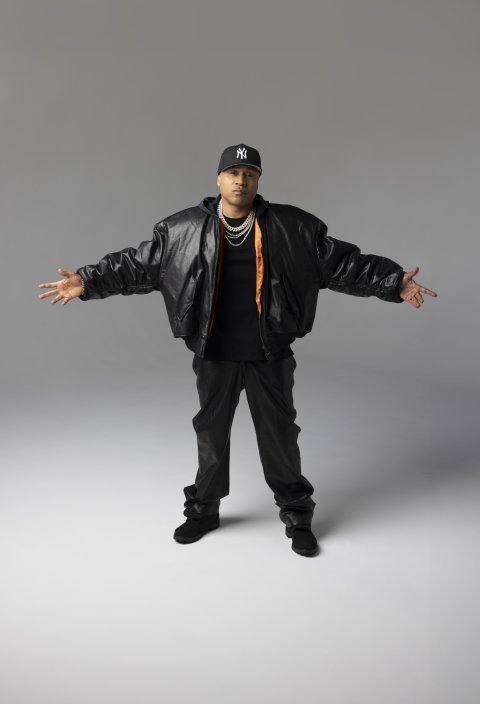
It’s impossible to overstate just how formative of a figure LL Cool J is in hip-hop. Sugarhill Gang’s “Rapper’s Delight” or Grandmaster Flash and The Furious Five’s “The Message” may be mainstream culture’s earliest images of hip-hop in the 1980s, but LL was the first true solo rap star. He signed to Def Jam Records in 1984 as the future industry powerhouse’s first act, at age 16, and songs like “I Need a Beat” and “I Can’t Live Without My Radio” embodied the bravado, brawn and style that made hip-hop so exhilarating and fresh.
At the time, hip-hop was still a nascent genre, largely limited to a budding culture that was permeating the streets of New York City. But LL’s debut album Radio (1985) helped prove hip-hop’s potential as the basis for actual songs, with Rick Rubin’s discordant, percussive production and LL’s boundless b-boy charisma.
His subsequent records would see him complement his hard-hitting rhymes with romantic and seductive cuts like “Doin’ It” that targeted women—and his chiseled frame and signature lip-licking in his music videos made him the genre’s earliest, most recognizable sex symbol.
There are other contributions he also brings up, when asked. He coined the term G.O.A.T. with his eighth album, G.O.A.T. Featuring James T. Smith: The Greatest of All Time (2000), combining boxing legend Muhammad Ali’s public affirmations with the nickname of streetball icon Earl “The Goat” Manigault.
He also says that he, specifically, popularized large jewelry with his third album Walking With a Panther, which displayed him wearing gold chains while posing next to a big cat with a large gold rope chain. “I got [the style] from the hustler dudes I was hanging with in Harlem. I’m not saying that I created it out of thin air, but I introduced it to the game,” LL says.
“I know for a fact that [Run-DMC member] Jam Master Jay got a bigger chain because of my chain. I know that ‘My Adidas’ was inspired by ‘[I Can’t Live Without My] Radio.’ I say that in a loving way, because they’re my favorite group ever. But those are little things I think are things that people don’t realize.”
“You ever see that movie It’s a Wonderful Life? I think if you remove me from hip-hop, you’d be shocked how different it would be,” LL laughs, referencing the 1946 film about a suicidal man who is accosted by a guardian angel that shows him his impact on the world.
“I don’t even get into tooting my own horn too much, because I don’t want to do that in that way anymore. If I write a rap right now, I’ll make the most arrogant, cocky s*** in the world. But off record, I don’t really want to go there. I’m just really thankful.”
A huge catalog of party and radio jams, platinum and gold plaques, victorious battles against other MCs and holding his own on posse cuts alongside other greats have earned him not just undeniable hip-hop bonafides, but also lifetime achievement awards like an entry into the Rock & Roll Hall of Fame and becoming the first solo rapper to receive a Kennedy Center Honor.
LL could rest on the laurels of his rap legacy, especially with such a successful career in Hollywood. Several rappers have built sustainable roles in film and TV, but besides Will Smith, LL doesn’t have any competition.

LSB Co-hosts Chrissy Teigen and LL Cool J on stage the Lip Sync Battle LIVE: A Michael Jackson Celebration at Dolby Theatre on January 18, 2018 in Hollywood, California.
Greg Doherty/Getty
Making his film debut with a cameo in Krush Groove in 1985 shortly before the release of Radio, he would steadily earn roles in dozens of TV shows and movies. He starred in sitcom In the House, appeared in beloved films such as Any Given Sunday (with Al Pacino and Jamie Foxx) and In Too Deep (with Omar Epps and Nia Long), and landed a recurring role in crime drama NCIS: Los Angeles, which ended in 2023 after 14 seasons. He’s also hosted the Grammys and the hit reality competition show Lip Sync Battle.
Many rappers who crack into television and film either abandon music or deprioritize it so much that it feels inconsequential. But LL Cool J has been doing the opposite: in the years since his 2013 album Authentic, he’s tooled away at his next body of work.
In 2016, he released a video freestyling over a beat produced by fellow rap luminary Dr. Dre for the latter’s show The Pharmacy on Beats 1 Radio. LL says that the pair created some 30 to 40 songs together, but he was unsatisfied with his own performance on what they had made. His unease was solidified by a dream he had where he had a conversation with the late Phife Dawg, an esteemed member of A Tribe Called Quest who died in 2016 due to complications from diabetes.
“He said to me, ‘yo, the album you’re doing is going to be dope,'” LL recounts, before emulating a sarcastic smirk that he says a posthumous Phife made at him. “I couldn’t tell what that really meant. Something told me, ‘you can’t call Phife, just call Q-Tip up.'”
This is Q-Tip’s largest collection of beats since Tribe’s sixth and final 2016 album We Got It From Here… Thank You 4 Your Service, and he shows exactly what LL and a posthumous Phife had in mind. His wide-ranging sample palette ranges from jazz legend Herbie Hancock to the Finnish 70s prog-rock band Wigwam, and contributing several choruses further adds to the collaborative spirit.
Lyrically, The FORCE—an acronym for Frequencies of Real Creative Energy—is LL’s most focused array since 1990’s seminal Mama Said Knock You Out. “Saturday Night Special” paints a portrait of a street-hardened hustler with featured verses by Rick Ross and Fat Joe, the Saweetie-featured “Proclivities” heats up the sexy raps that became such a staple of his career, and “Post Modern” revives the ravenous scowl of his raps from the 80s.
He also showcases standout performances alongside other rap veterans such as Nas on “Praise Him,” Busta Rhymes on “Huey in the Chair” and Eminem on “Murdergram Deux.” (He says that he shot the music video with Eminem for the latter song shortly before our Zoom call.)
But many fans may be surprised by LL’s pro-Black lyrical presence on the album. “Black Code Suite” and the Busta-featured “Huey in the Chair” both pay homage to cultural Black iconography. “30 Decembers” recounts him returning to NYC during the pandemic, wearing a mask and seeing a woman appear to racially profile him.
The stark album opener “Spirit of Cyrus” finds LL rapping from the perspective of Christopher Dorner, the former LAPD officer who killed four people and wounded three others in 2013. Dorner claimed in a manifesto that he was fired in retaliation for reporting excessive force in the department. LL said that he was inspired to write the song after law enforcement and friends told him to stay inside during the manhunt for Dorner since the two men looked alike. Rap listeners are more likely to associate songs like this with acts like Public Enemy than they do with LL.
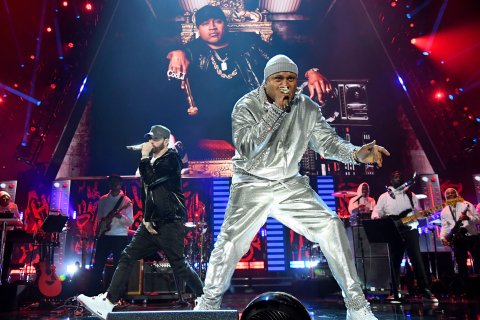
Eminem and LL Cool J perform onstage during the 36th Annual Rock & Roll Hall Of Fame Induction Ceremony at Rocket Mortgage Fieldhouse on October 30, 2021 in Cleveland, Ohio.
Kevin Mazur/Getty Images for The Rock and Roll Hall of Fame
“I’m still the inclusive LL Cool J, forever. That being said…I felt like it would be artistically irresponsible and cowardly of me to not speak on what’s going on in the world,” LL lamented. “If you’re not willing to stand up for your culture and speak on your culture—what am I going to do? Just make a rap record about, ‘NCIS gave me millions of dollars?'”
It’s all in pursuit of proving that hip-hop doesn’t have to be a young man’s game, after all. The genre celebrated its 50th birthday in 2023, and MCs in their 40s and 50s—several of whom appear on The FORCE—are showing that they can contribute to the culture without so desperately trying to keep up. LL compares his place in hip-hop to basketball superstar LeBron James, who begins his 22nd season in the NBA this fall.
“I just want to show people that it’s doable. That in hip-hop culture, and Black music in general, we don’t have to bow out for no reason,” he says. “I feel like if LL Cool J doesn’t make rap records, I’m cheating the world and I’m cheating myself.”
About the writer
This post was originally published on this site be sure to check out more of their content.




